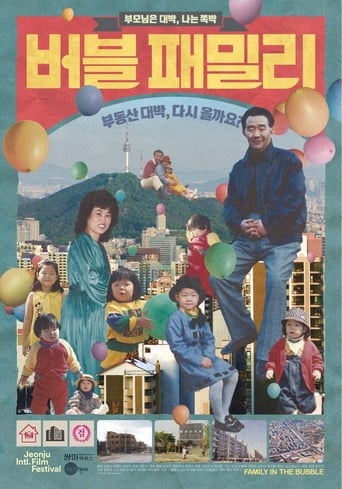
20 Dec 2018

Family in the Bubble
My parents were real estate developers and dealers in the 1980s. They achieved the ‘middle class dream’ thanks to the development boom. However, the Asian financial crisis swept everything away.

Eunmi, a woman who underwent intense anti-communist education while she grew up in South Korea, lives a normal life in America. However, after going on a trip to North Korea with her husband, her life begins to change. During an open forum event in South Korea, where she was invited to speak, she suffers the unimaginable, and the more she tries to escape from the situation, the worse and worse it gets.

Self (archive footage)
Self

20 Dec 2018

My parents were real estate developers and dealers in the 1980s. They achieved the ‘middle class dream’ thanks to the development boom. However, the Asian financial crisis swept everything away.
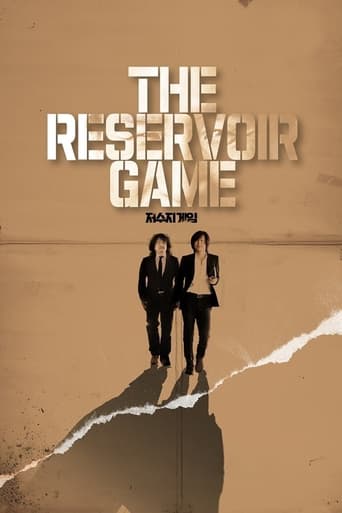
07 Sep 2017

An investigative reporter seeks to expose the whereabouts of a slush fund belonging to the former president of South Korea, Lee Myung-bak.
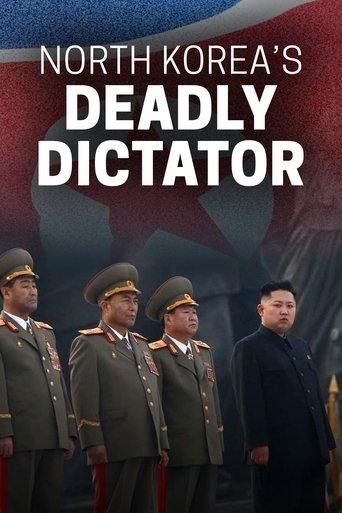
29 Sep 2017

The assassination of Kim Jong-nam occurred on 13 February 2017 when two women attacked him with VX nerve agent, a lethal chemical weapon, at Kuala Lumpur International Airport in Malaysia. Kim was the eldest son of deceased North Korean leader Kim Jong-il and the half-brother of current North Korean leader Kim Jong-un. North Korean diplomats objected to any form of autopsy being conducted on Kim's body, but the autopsy proceeded as the they did not submit a formal protest. Following Malaysia's refusal to release the body immediately, North Korea's ambassador Kang Chol accused Malaysia of collaborating with the country's enemies over the assassination of Kim Jong-nam.
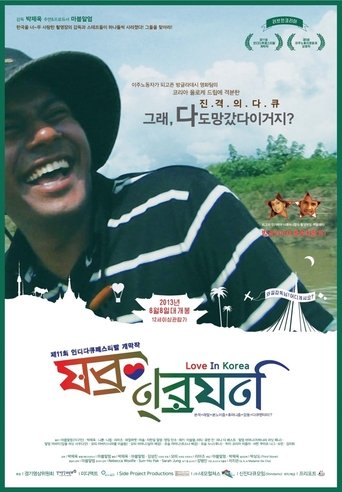
08 Aug 2013

No overview found
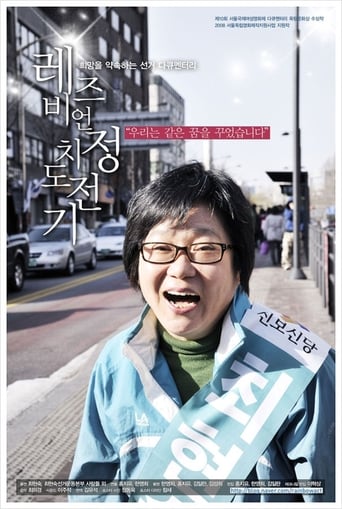
11 Apr 2009

A documentary that tells the story of Choi Hyun-sook, the first out lesbian parliamentarian candidate in Korea who ran for Jongno-gu in the April 2008 National Assembly election. It's a story about people who dream of a world where minorities are happy, and who, with expectation and aspiration, find the campaign headquarters and made an election with Choi Hyun-sook.
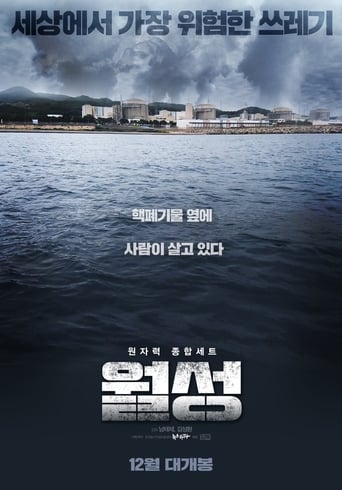
12 Dec 2019

No overview found
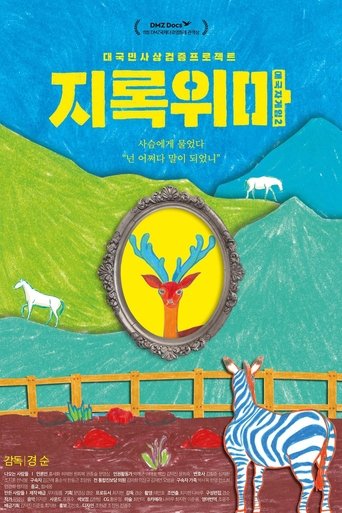
19 Dec 2019

No overview found
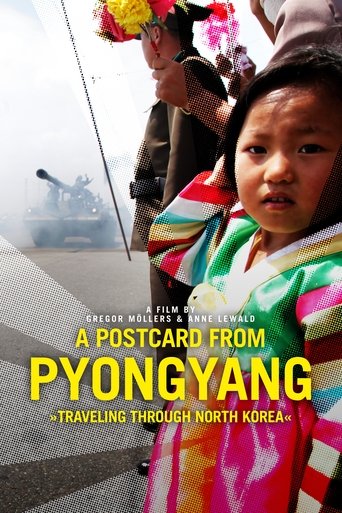
26 Sep 2019

"A Postcard from Pyongyang" is a journey into a deeply enigmatic and completely isolated country that keeps the world in suspense: North Korea. Friends Gregor Möller, Philip Kist and Anne Lewald visit in 2013 and 2017 and do what is strictly forbidden and for which they might have ended up in a forced labor camp: even though accompanied by state watchers, they secretly film their travels, accompanied by state watchdogs. We get an extraordinary insight into one of the most closed societies in the world and experience the 'beautiful new world' as the state propaganda machinery displays it.

15 Oct 2021

In Maija Blåfield’s documentary, eight former North Koreans talk about what it was like to watch illegal films in a closed society. In addition to the 'waste videos', South Korean films were also smuggled into the country via China.
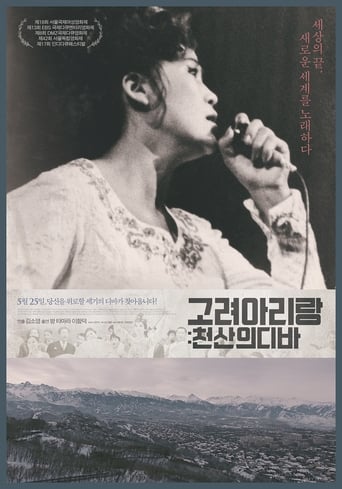
25 May 2017

The documentary starts with a diva of a tragic family history related to a history of migration. The rare archival footage reanimates her history reverberating with the current world crisis. Sound of Nomad: Koryo Arirang is a testimonial – a witness to injustice and tragedy, but it is also a declaration of survival – a survival that is not static but transformative – not brittle but fluid. The trains that displace, the deserts that separate form one harsh horizon – a historical limit – but within that limit, against it and across it are people, are a culture, not escaping but flourishing unofficially, with the affective majesty of a melody, a rhythm, an Arirang
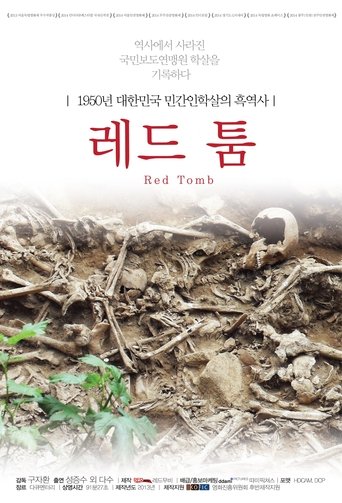
09 Jul 2015

No overview found

12 Aug 2021

True crime meets global spy thriller in this gripping account of the assassination of Kim Jong-nam, the half brother of the North Korean leader. The film follows the trial of the two female assassins, probing the question: were the women trained killers or innocent pawns of North Korea?
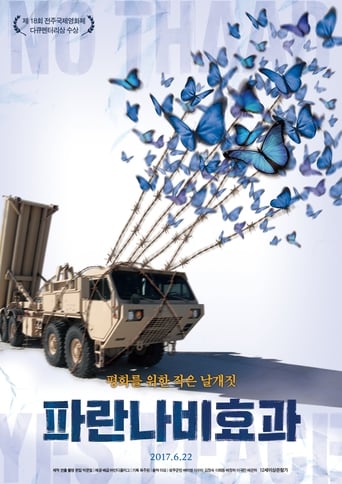
22 Jun 2017

The small county of Seongju staged protests against the THAAD. Young mothers led protests from concerns about their kids and the exposure to radiation. Gradually, they learn the system is faulty.
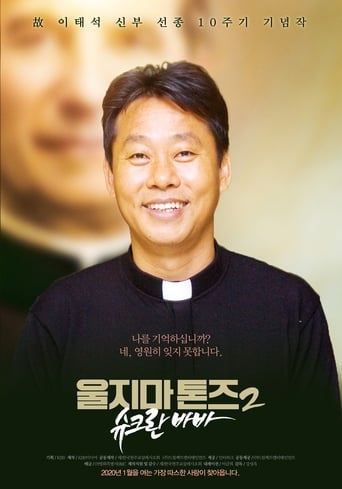
09 Jan 2020

Tonj, Sudan is the land with only desperation from poverty and war. This is the story about priest also doctor, educator, musician and architect Lee Tae-seok’s work and hidden episode behind.
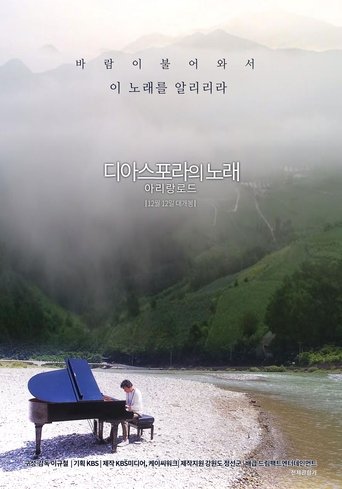
12 Dec 2019

During the Japanese occupation period, Koreans were forced to deport or drafted to work in other countries. Now 150 years passed, it appears around 7million of those people and their families are spread in 170 countries. There, a world-famous Korean-Japanese musician Yang Bang Ean follows the pathways of Korean diasporas as an inspiration, and performs his cross over music concert called ‘ARIRANG ROAD’.

28 Nov 2012

No overview found

27 Oct 2021

Ryun-hee Kim, a North Korean housewife, was forced to come to South Korea and became its citizen against her will. As her seven years of struggle to go back to her family in North Korea continues, the political absurdity hinders her journey back to her loved ones. The life of her family in the North goes on in emptiness, and she fears that she might become someone, like a shadow, who exists only in the fading memory of her family.
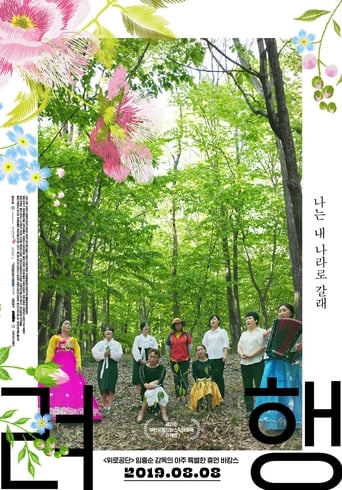
08 Aug 2019

A group of women climbs a summer mountain situated in South Korea. They are refugees who have settled into South Korean society after fleeing from North Korea. For them, climbing the mountains has been an unavoidable journey for survival - a matter of life and death.
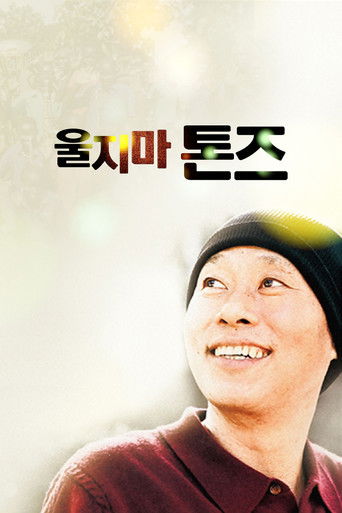
09 Sep 2010

A Schweitzer of Korea Father LEE Tae-seok, devoted his life in Sudan; a remote area of Africa.
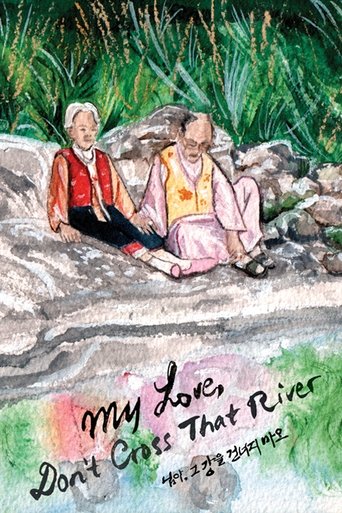
27 Nov 2014

There lives a couple known as "100-year-old lovebirds". They're like fairy tale characters: the husband is strong like a woodman, and the wife is full of charms like a princess. They dearly love each other, wear Korean traditional clothes together, and still fall asleep hand in hand. However, death, quietly and like a thief, sits between them. This film starts from that moment, and follows the last moments of 76 years of their marriage.